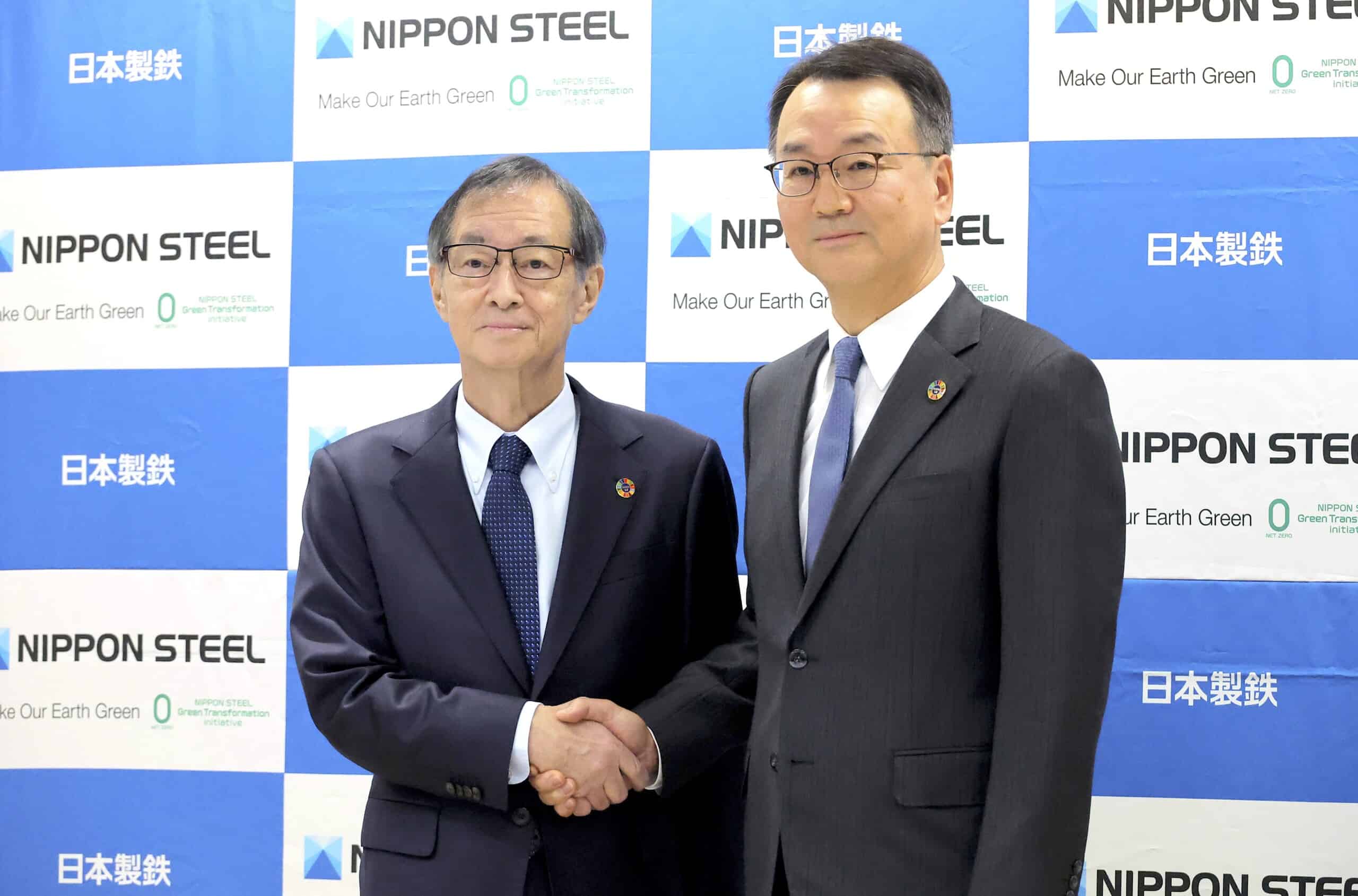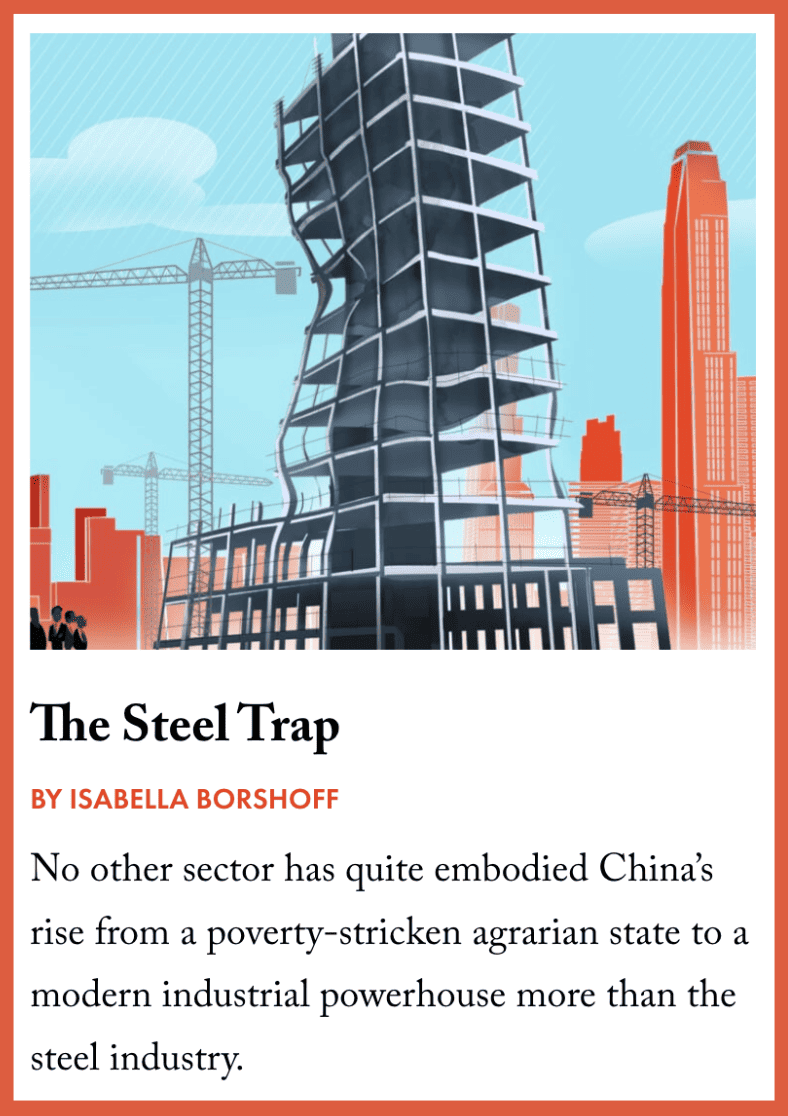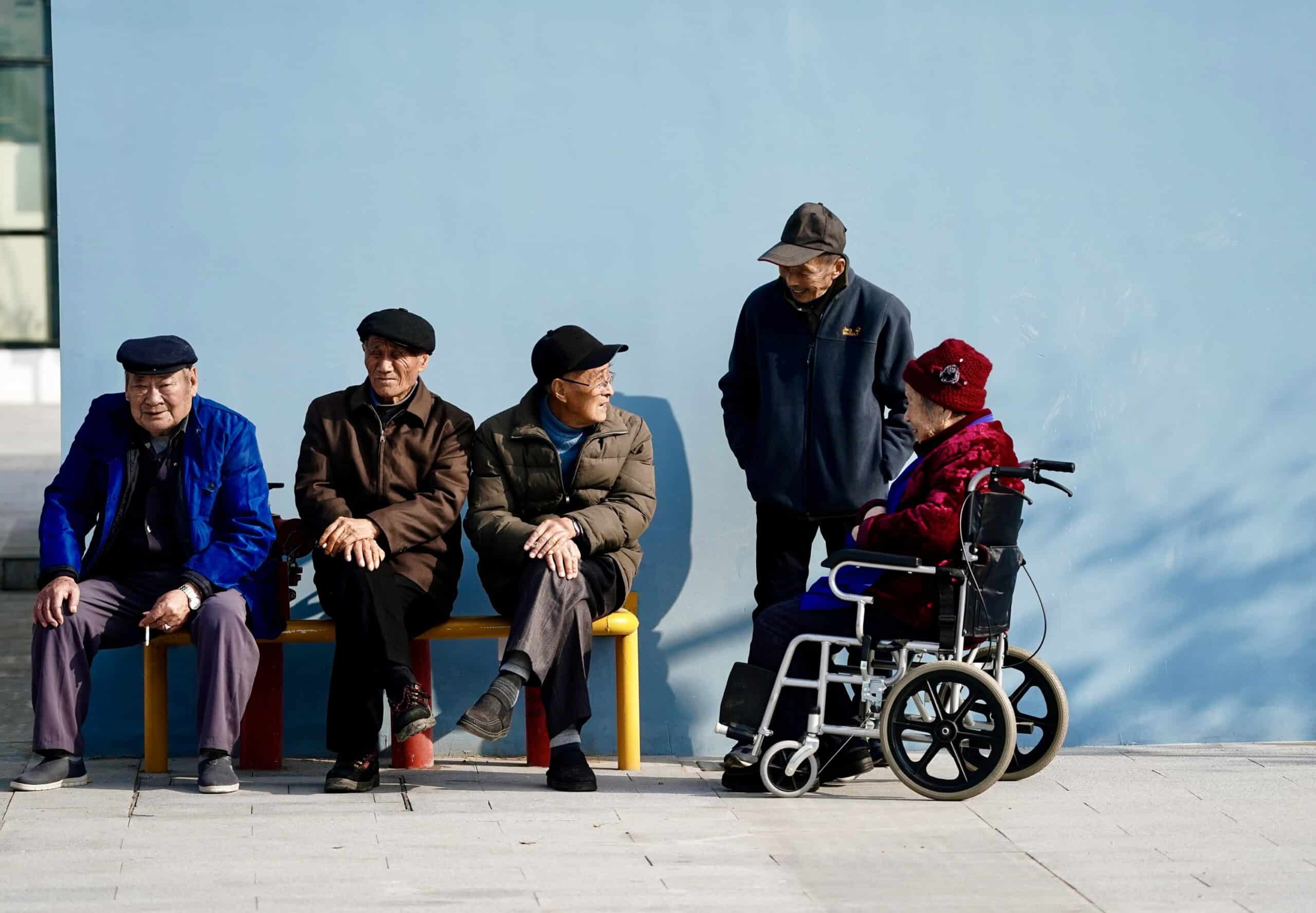
It was supposed to be a marquee deal fusing together two allies. Instead, four months after Nippon Steel proposed a $14 billion merger with U.S. Steel, the deal has become mired in election year politics and a protracted national security review.

Opposition from the United Steelworkers union — which represents roughly half of U.S. Steel’s employees — over concern about job security is spurring resistance to the deal from politicians on both sides of the aisle, including inside the White House. Now, China has emerged as an unlikely additional sticking point.
Last week, Ohio senator Sherrod Brown, a Democrat who chairs the Senate Banking Committee, penned a letter to President Biden urging him to examine Nippon’s “ties to the Chinese government,” citing a report by political consultancy Horizon Advisory which highlighted Nippon’s investments in China’s steel industry as a potential threat to national security.
At least two other senators — Ohio Republican JD Vance and Pennsylvania Democrat Bob Casey — have backed Brown’s position. Their opposition has come as the Committee on Foreign Investment in the United States (CFIUS) has undertaken a review of the deal for national security risks, a process typically reserved for investments from adversary countries, not a longstanding U.S. ally like Japan.
That has provoked concern that the Biden administration’s expansive definition of national security is being wielded against America’s allies, not only its adversaries, at a time when the U.S. needs their cooperation to compete against China.
The risk stems from the Chinese government’s approach to generating market dominance. We know that [China] is adept at applying leverage through industrial policy.
Nate Picarsic, co-author of the Horizon Advisory report
“The U.S. spearheaded this ‘small yard, high fence’ concept. They need to be consistent in applying it,” says Yeo Han-koo, a senior fellow at the Peterson Institute for International Economics, a Washington, D.C. think tank, and former trade minister for South Korea, referring to the doctrine used by National Security Advisor Jake Sullivan to permit most economic relations with China to continue, outside a small group of heavily restricted industries. “The last thing the U.S. wants to be seen as doing is using national security for the sake of protectionism.”

Nippon’s investments in China extend back to the advent of the country’s reform and opening up era. Its business in China began after Deng Xiaoping visited the company’s facilities in Japan during a tour in 1978, after which he urged Nippon to aid his country’s industrial modernization.
“Just like this, build a steel plant for China,” he reportedly told his Japanese hosts.
Nippon quickly partnered with Baoshan Iron and Steel (Baosteel), a newly established flagship state-owned enterprise, to establish state of the art facilities in the outskirts of Shanghai, including Baosteel’s first blast furnace in 1985.
In the early 2000s, Nippon continued to expand its footprint in China with a raft of joint ventures, but usually not with local partners. Company annual reports and data from WireScreen show that of Nippon’s nine current steelmaking operations in China, seven are joint ventures exclusively with other Japanese firms.
The two largest joint ventures are with China’s Baosteel and other steelmaking major, Wuhan Iron and Steel Co. (WISCO). In a joint venture with Baosteel called BNA, Nippon produces automotive steel sheets, commonly used in the production of vehicle chassis. With WISCO, it manufactures tinplate, used to make soup and beverage cans. In 2016, Baosteel and WISCO were consolidated in a mega-merger, forming Baowu Group, now the world’s largest steelmaker by output.

According to Nate Picarsic, who co-authored the Horizon report, Nippon’s business ties to Baowu could give its Chinese partner influence over its operations, even overseas. He points to binds faced by other foreign companies with deep investments in China like Apple, which has been slow to diversify its supply chain outside of the country despite political pressure from Washington.
“The risk stems from the Chinese government’s approach to generating market dominance,” says Picarsic. “We know that [China] is adept at applying leverage through industrial policy. For example, [foreign] consumers of Chinese rare earth supply chains are hesitant to vertically integrate their supply chains [outside of China] because the Chinese will impose costs on their supply chains if they start doing so.”

China possesses a near monopoly over the production of rare earths, a key ingredient in computer and defense technologies, and efforts in the West to diversify supply have been slow. In December, China banned the export of rare earth extraction and separation technologies, further complicating those efforts.
In a statement last week, Nippon Steel denied some of the other claims in the Horizon report, including that Nippon has had a presence in Xinjiang and supported China’s military. It says that the automotive steel sheets produced by its BNA joint venture are not exported to the U.S., and that all other operations in China are “small and account for a very limited portion of its global steelmaking business.”

Indeed, Nippon’s most recent annual report shows that, at 3.6 million tons, its total annual production capacity in China is minimal relative to the rest of the company’s output: China accounted for less than 3 percent of its annual global output in 2022. By comparison, by acquiring U.S. Steel, it would add more than 14 million tons of annual production capacity under its belt in North America.
China is also a shrinking market for Japanese steel exports, which have dropped by 13 percent from their peak in 2021 owing to the country’s property sector woes and construction slowdown, according to data from the Japanese Ministry of Finance. Diversifying its international investments by doubling down on North America makes sense for Nippon, particularly following recent U.S. legislation aimed at shoring up manufacturing.
| Company | Country | Mt (2022) | Rank (2022) |
|---|---|---|---|
| China Baowu Group | China | 131.84 | 1 |
| ArcelorMittal | Luxembourg | 68.89 | 2 |
| Ansteel Group | China | 55.65 | 3 |
| Nippon Steel Corporation | Japan | 44.37 | 4 |
| Shagang Group | China | 41.45 | 5 |
| HBIS Group | China | 41 | 6 |
| POSCO Holdings | South Korea | 38.64 | 7 |
| Jianlong Group | China | 36.56 | 8 |
| Shougang Group | China | 33.82 | 9 |
| Tata Steel | India | 30.18 | 10 |
| … | |||
| Cleveland-Cliffs | United States | 16.8 | 22 |
| … | |||
| United States Steel Corporation | United States | 14.49 | 27 |
“Given the administration’s emphasis on the green transformation and the huge amount of steel needed for renewables, there’s a great opportunity here for steel,” says William Chou, an expert on U.S.-Japan relations at the Hudson Institute, a conservative American think tank. “Japan sees our market as really compelling despite our elevated personnel costs because we have the most growth potential among the developed nations.”
Picking on whatever investments foreign investors may have in China and drawing connections to a national security threat is an over-stretch.
Yeo Han-koo, a senior fellow at the Peterson Institute for International Economics, and former trade minister for South Korea
Companies have historically tended to face CFIUS scrutiny when their investors come from countries of concern, such as China. It is rare for a foreign company to be scrutinized on national security grounds simply for having investments in China.
“Many U.S. investors and foreign investors have manufacturing operations in China,” says Yeo. “Picking on whatever investments foreign investors may have in China and drawing connections to a national security threat is an over-stretch.”

Some observers warn that blocking the Nippon deal on the basis of its Chinese investments also raises double standards, given that the U.S. has welcomed investment in strategic industries — from semiconductors to EV batteries — from foreign companies with presences in China. Companies like Korea’s SK Hynix and Japan’s Panasonic have pledged billions in U.S. investment since the passing of the 2022 Inflation Reduction Act and CHIPS and Science Act: Both also have significant China operations.
Horizon’s Picarsic dismisses the notion that blocking the Nippon deal would harm the U.S.-Japan alliance.
“There’s no reason the strong U.S.-Japan alliance should be reduced to one transaction,” says Picarsic. “There are all sorts of ways to increase alliance coordination independent of individual transactions.”

During a visit to Washington last week by Japanese Prime Minister Fumio Kishida the two countries announced 70 agreements to shore up their alliance, including partnerships to produce military equipment, and cooperate on joint ventures in artificial intelligence. President Joe Biden made no mention of national security concerns in relation to the Nippon deal during his press conference with Kishida on Wednesday, focusing only on labor issues with the steelworkers’ union.
“Overall, the U.S.-Japan relationship is strong,” says Chou. “Given China’s aggressive actions in the region, Japan will work closely with the U.S. to support a rules-based order. Privately, Japanese officials will grouse about [the Nippon deal], but publicly the Japanese government has been very careful not to get involved.”
On Friday, U.S. Steel’s shareholders voted overwhelmingly in favor of approving the merger. But the deal cannot close until a decision is reached by CFIUS, which could take a year or more, according to earlier reporting by Bloomberg, citing unnamed senior administration officials. The secretive committee could then recommend a range of actions from blocking the deal outright to imposing conditions, such as requiring that Nippon divest its Chinese operations.
Given its marginal footprint in China, should it be forced to choose sides, Nippon may well find America the more attractive option.

Eliot Chen is a Toronto-based staff writer at The Wire. Previously, he was a researcher at the Center for Strategic and International Studies’ Human Rights Initiative and MacroPolo. @eliotcxchen



